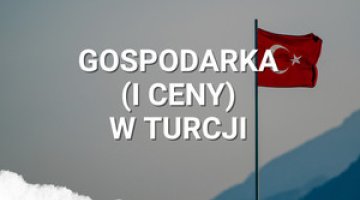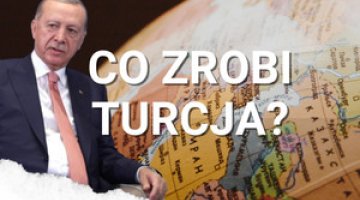The Khashoggi case – escalating Turkish-Saudi tension
Jamal Khashoggi, a Saudi opposition journalist who had co-operated with The Washington Post (among other media) went missing on 2 October in Istanbul. According to the Turkish services, he was detained in the grounds of Saudi Arabia’s consulate in Istanbul where he was settling formalities linked to his planned wedding with a citizen of Turkey. Then he was reportedly tortured and murdered in the consulate’s building. His case came as a shock to the Western media and public opinion in Arab countries. It is also causing increasing political tension between Ankara and Riyadh – the Saudi ambassador has been summoned to Turkey’s Ministry of Foreign Affairs twice, and President Recep Tayyip Erdoğan has promised that he will personally supervise the investigation. He then appealed to the government of Saudi Arabia to facilitate the inspection of the consulate’s building. Riyadh granted consent to this and claims that Khashoggi left the consulate on the day of his visit there and went missing outside its territory.
Commentary
- The case of Khashoggi’s disappearance and probable murder has significantly stoked Turkish-Saudi relations. The two countries are vying for leadership in the Muslim world and have adopted fundamentally different stances on many regional issues. The main subjects of dispute are the attitude towards the activity of the Muslim Brotherhood (it is supported by Ankara and combated by Riyadh), Saudi Arabia’s conciliatory policy with regard to Israel which, in Turkey’s opinion, means the betrayal of the Palestinian cause, and Turkey’s close co-operation with Qatar, which in 2017 Saudi Arabia and the other Gulf countries accused of supporting terrorism and as a consequence a blockade was imposed on it.
- Turkey will most likely capitalise on the scandal over the Khashoggi case in its tense relations with the United States. The possible death of the Saudi dissident who co-operated with the US newspaper critical of the Donald Trump administration will be used by Ankara to intensify criticism of Washington, whose main ally in the Middle East is Riyadh. Turkey’s relations with the USA are the worst in history. In Ankara’s opinion, US support for Syrian Kurds is targeted against its security – the Kurdish Democratic Union Party (PYD) is a Syrian Branch of the Kurdistan Workers’ Party (PKK), which is recognised as a terrorist organisation by the EU and the USA. Turkish-US disputes also concern the lack of US consent to extraditing Fethullah Gülen, who has been accused of inspiring the unsuccessful coup in 2016, and of keeping the US pastor Andrew Brunson under arrest in Turkey on charges of collaboration with the Gülen Movement. Therefore, Ankara will present US policy in the region as targeted against democracy in Turkey, and the close alliance of Washington and Riyadh as discrediting the US side.
- Ankara may treat the incident as a trigger for entering a new phase of rivalry for leadership in the Sunni world. As compared to Saudi Arabia, Turkey has been promoting itself as a relatively democratic and transparent state. Capitalising on the aspirations of the Middle Eastern public, it will make efforts to bring into prominence its role as a patron of forces that are in opposition to corrupt regimes. However, it should not be expected that playing on this case in this manner will automatically cause a strengthening of its position in the region. Turkey has limited resources at its disposal and needs to face recession, while the possible defeat of the Syrian opposition which it supports may again ruin Turkey’s image as a successful advocate of democratic forces in the region.




